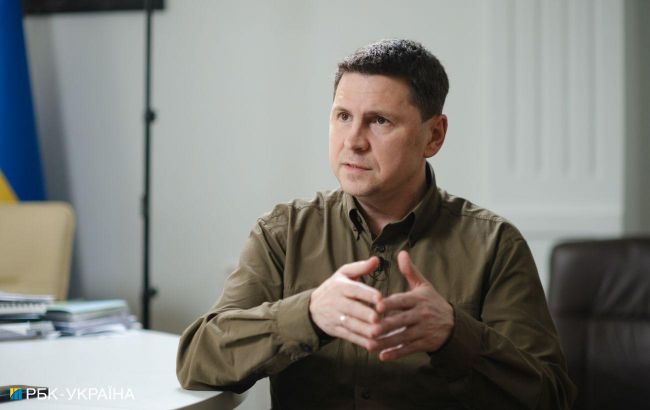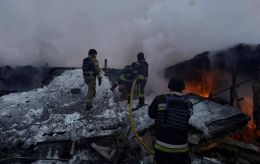Ukrainian Presidential Office on Russian drones in NATO airspace: Primitive 'salami tactics'
 Photo: Advisor to the Head of the Office of the President of Ukraine Mykhailo Podolyak (Vitalii Nosach, RBC-Ukraine)
Photo: Advisor to the Head of the Office of the President of Ukraine Mykhailo Podolyak (Vitalii Nosach, RBC-Ukraine)
Russian drones are increasingly violating the airspace of NATO countries. These seemingly minor incidents are used by Russia to discredit the Alliance, according to Mykhailo Podolyak, advisor to the Head of the Office of the President of Ukraine, and the Center for Countering Disinformation.
"It is well known (even to the Russians) where NATO's geographical boundaries lie today. But no one knows where NATO's boundary of patience is. When will the theoretically most powerful military alliance in history actually be ready to defend its borders? The Russians acquire this strategically valuable information in their traditional way—through cynical battle reconnaissance," Podolyak wrote.
He reminded that over the weekend, during attacks on Ukrainian territory, Russian drones twice violated the airspace of NATO countries.
"The experiment has been conducted, and a clear result has been obtained. Now the adversary knows: NATO will not respond to violations of its airspace by unmanned aerial vehicles and attacks on its territory that do not result in casualties. What comes next is easy to predict: border violations by aircraft and possible 'incidental attacks' with few casualties," the advisor to the Head of the Presidential Office noted.
According to him, Russia always uses primitive "salami tactics": it discredits NATO during seemingly minor incidents.
"They slowly escalate the conflict, trying to avoid the activation of Article 5 of the alliance’s mutual defense statute. The goal is to undermine the confidence of individual Alliance members and make them consider separate agreements with Russia. And who can say this plan isn’t working?" Podolyak added.
At the same time, as explained by the Center for Countering Disinformation, such provocations are Kremlin attempts to destabilize the situation in NATO countries and intimidate their populations with the threat of direct armed conflict with Russia.
"Fear, as the Kremlin believes, should hinder the provision of military assistance to Ukraine," the Center stated.
Russian drones in NATO airspace
Yesterday, on September 8, Latvian President Edgars Rinkēvičs said that a Russian military drone had crashed in the eastern part of his country. An investigation has been launched in Latvia.
Also, according to the Air Force, on the night of September 7-8, a Russian drone flew into Romania from the Odesa region. Residents of the Romanian counties bordering Ukraine received notifications about the threat of a falling object.

